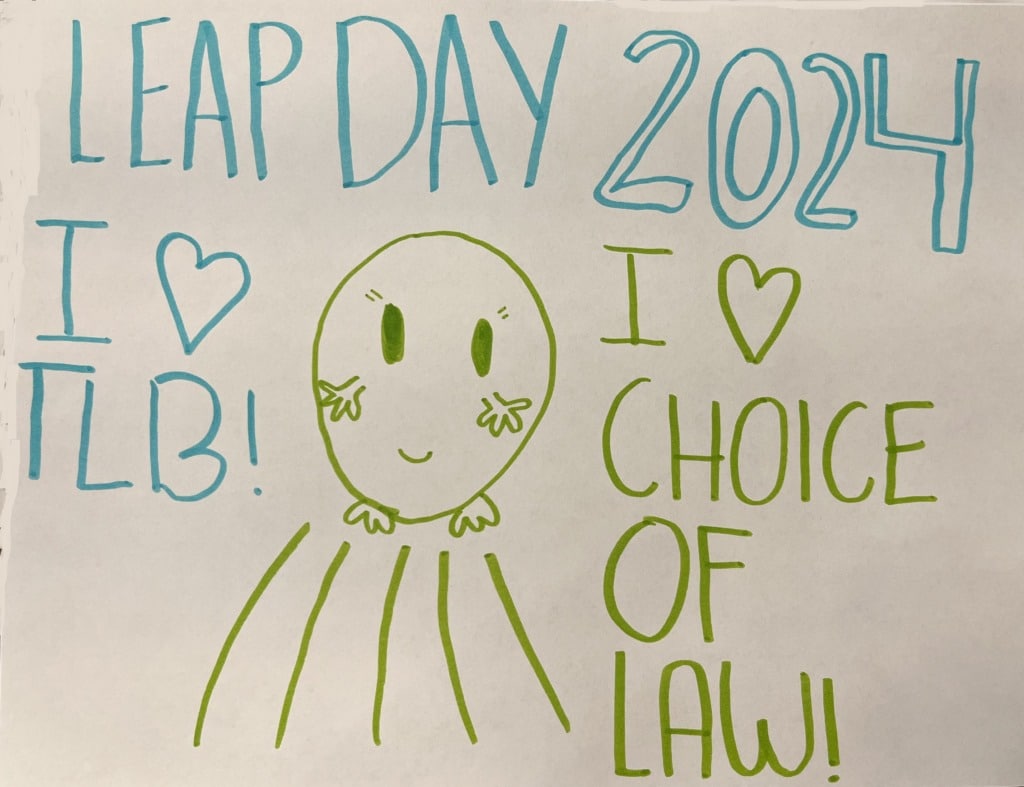Second Circuit Denies Rehearing En Banc in Fuld v. PLO
Last week, the Second Circuit denied rehearing en banc in Fuld v. Palestinian Liberation Organization, an important personal jurisdiction decision that TLB has previously covered here, here, and here. The denial prompted a dissent by Judge Steven Menashi, joined in whole or in part by three other judges, which in turn prompted a concurrence by…
Continue ReadingSuccessor Jurisdiction and Anti-Terrorism Litigation
Transnational litigation often presents tricky questions of personal jurisdiction. Ongoing litigation in New York arising out of rocket attacks by Hizbollah does so in spades. This post reviews the recent New York Court of Appeals decision in Lelchook v. Société Générale de Banque au Liban SAL, answering a certified question posed by the Second Circuit…
Continue ReadingAdditional Thoughts on Firexo
I have three thoughts to add to John Coyle’s insightful post on the U.S. Court of Appeals for the Sixth Circuit’s recent decision in Firexo, Inc. v. Firexo Group Limited: one on choice of law, one on jurisdiction, and one on forum selection. Choice of Law Even though the majority declines to apply the “closely…
Continue ReadingSaying Yes to the World, But No to Personal Jurisdiction
The Northern District of California (Judge Susan Illston) recently dismissed for lack of personal jurisdiction a suit brought by California residents against the German airline Lufthansa for harms emanating from the plaintiffs’ experience boarding a flight in Saudi Arabia en route to San Francisco. As the court noted in Doe v. Deutsche Lufthansa Aktiengesellschaft, the…
Continue ReadingHow To Find Personal Jurisdiction Over Foreign Website Operators
The Supreme Court’s recent personal jurisdiction decisions have raised more questions than they have answered. Meanwhile, the high Court has studiously avoided explaining how twentieth-century personal jurisdiction doctrine should map onto a twenty-first century world defined by Internet commerce, global supply chains, and cloud computing. The work of maintaining and updating a practical framework for…
Continue ReadingChoice of Law in the American Courts in 2023
The thirty-seventh annual survey on choice of law in the American courts is now available on SSRN. The survey covers significant cases decided in 2023 on choice of law, party autonomy, extraterritoriality, international human rights, foreign sovereign immunity, adjudicative jurisdiction, and the recognition and enforcement of foreign judgments. So, on this leap day, we thought…
Continue ReadingNinth Circuit Gets Tangled Up in Minimum Contacts and Due Process
Do the Fifth Amendment’s due process protections require minimum contacts? And do those protections apply to foreign states sued under the Foreign Sovereign Immunities Act (FSIA)? Those are the fundamental questions on which Ninth Circuit judges offered differing approaches as they resolved a recent petition for rehearing en banc. Regular TLB readers may recall that…
Continue ReadingExecution of Judgments Against the Assets of Foreign Sovereigns Located Abroad
The Foreign Sovereign Immunities Act (FSIA) provides immunity from execution for the “property in the United States of a foreign state.” It does not confer immunity on a foreign state’s property located abroad. The limitation makes sense: to the extent that a foreign sovereign’s property located outside the United States is not subject to the…
Continue ReadingPersonal Jurisdiction and Extraterritoriality
The U.S. Supreme Court has repeatedly said that Congress has constitutional authority to regulate extraterritorially. “Both parties concede, as they must,” Chief Justice Rehnquist wrote in EEOC v. Arabian American Oil Co. (1991), “that Congress has the authority to enforce its laws beyond the territorial boundaries of the United States.” The presumption against extraterritoriality, which…
Continue ReadingCase Brought by Jamal Khashoggi’s Widow Dismissed
Hanan Elatr Khashoggi sued Israeli spyware companies in connection with the death of her husband, journalist Jamal Khashoggi. A critic of the Saudi government, Khashoggi was killed in Istanbul, Turkey at the Saudi Arabian consulate. Last year, Judge John Bates (D.D.C.) dismissed a civil suit against Saudi Crown Prince Mohammed bin Salman on grounds of…
Continue Reading






